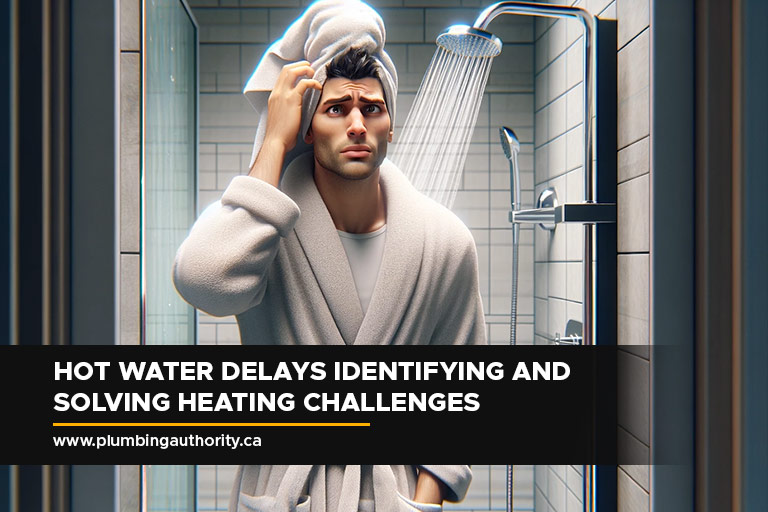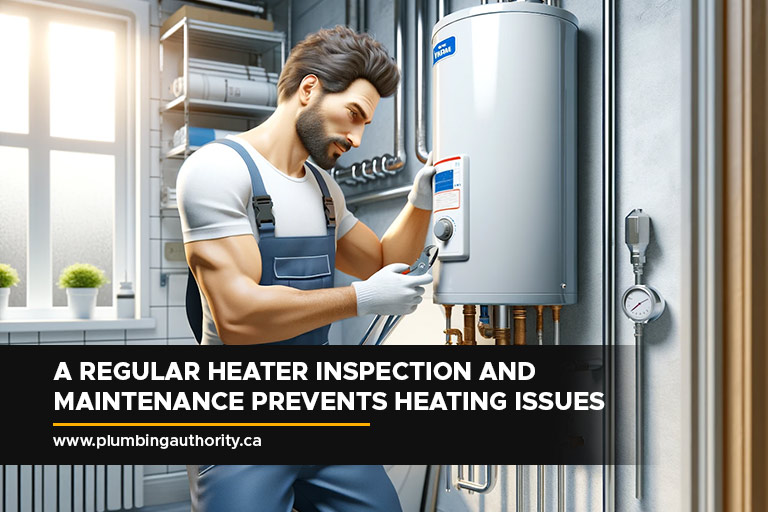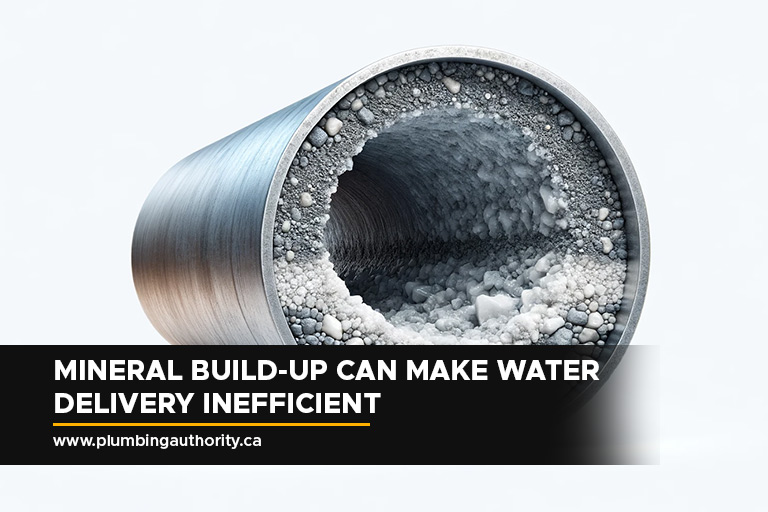
Imagine planning a quick shower only to wait endlessly for warm water or trying to wash dishes with water that’s lukewarm at best. These scenarios are not just frustrating but also disruptive to your daily routine. The comfort of a home is significantly impacted when hot water is not readily available. It’s easy to take for granted the luxury of instant hot water until you’re faced with a delay. This common problem can arise from various factors, ranging from technical malfunctions to simple oversights in system maintenance.
Hot water is a fundamental need in every household, essential for daily tasks from showering to cooking. However, when it takes too long for the water to heat up, it can signal underlying water heater problems or issues with your plumbing system. Whether it’s a minor fix or a sign of a more serious problem, understanding why your water is taking too long to heat up can help you take appropriate action and restore your home to its comfortable state.
Reasons Why My Water Heater is Slow

A regular heater inspection and maintenance prevents heating issues
- Sediment Buildup in the Water Heater
Hard water contains minerals like calcium and magnesium that, over time, settle at the bottom of water heaters. This sediment acts as an insulating layer, hindering the heat transfer from the burner or heating element to the water. As a result, the system must work harder and longer to reach the desired temperature, leading to inefficiency and prolonged heating times. Additionally, this buildup can cause overheating and damage to the tank, leading to costly repairs.
- Faulty Heating Elements
In electric water heaters, heating elements are responsible for warming the water. Over time, these elements can corrode, develop a build-up of scale, or simply wear out, resulting in a significant drop in heating efficiency. In gas heaters, the burner can face similar issues, such as clogged burner ports or a misaligned thermocouple, leading to inadequate heating. When these components fail or function improperly, the water heater takes longer to heat the water, or in some cases, might fail to heat the water at all.
- Inadequate Water Heater Size
Choosing the right size water heater is crucial for meeting a household’s hot water demands. If the heater is too small, it won’t have enough capacity to supply continuous hot water, especially during peak usage times. This size mismatch means the unit is constantly working to reheat water, leading to delays and a continuous shortage of hot water. Upgrading to a properly sized water heater based on the household’s water usage patterns can resolve this issue, ensuring a steady and reliable hot water supply.
- Distant Water Heater Location
The placement of the water heater in relation to its point of use plays a significant role in how quickly hot water is delivered. In larger homes, if the heater is installed far from bathrooms or the kitchen, the water must travel a longer distance through the pipes. This not only takes time but also allows the water to lose heat along the way, especially if the pipes are not well-insulated.
- Old and Inefficient Water Heater
As water heaters age, they lose efficiency due to general wear and tear, and the accumulation of sediment and rust. Older units often take longer to heat water, consume more energy, and are prone to breakdowns. These inefficiencies can result in higher utility bills and unreliable hot water supply.
- Thermostat Issues
The thermostat in a water heater controls the temperature of the water by regulating the heating element or burner. If the thermostat is set too low, the water won’t heat adequately. Conversely, if it’s malfunctioning, it may not signal the heater to turn on at the correct temperature, leading to lukewarm water or significant delays in heating.
Tips to Fix the Issues

Mineral build-up can make water delivery inefficient
- Regular Maintenance and Flushing
Water heaters are prone to sediment accumulation, especially in areas with hard water. These sediments, primarily composed of minerals like calcium and magnesium, settle at the bottom of the tank, creating an insulating layer that hinders efficient heat transfer. When troubleshooting the hot water system, regular flushing of the water heater removes these sediments, enhancing its efficiency and prolonging its lifespan. Professional plumbers use specialized techniques to thoroughly cleanse your water heater, ensuring it operates at optimal performance.
- Repair or Replace Heating Elements
The heating elements in your water heater are vital for its function. In electric heaters, these elements can become coated with sediment or burn out over time, leading to inefficient heating. Having a professional assess these components is crucial. They can determine whether cleaning, repairing, or replacing the elements or burner is necessary. Regular inspection and timely replacement of these parts ensure your water heater functions efficiently, providing quicker hot water and reducing energy consumption.
- Upgrade Your Water Heater
If your water heater is outdated or too small for your household’s needs, upgrading to a newer, more efficient model can significantly improve your hot water experience. Modern tankless water heaters are an excellent option, as they provide hot water on demand and do not store a large volume of water that needs constant heating. This on-demand system not only reduces waiting time for hot water but also cuts down on energy bills, as it eliminates the need to maintain a constant water temperature in a tank.
- Insulate Pipes
Heat loss in water pipes can be a significant factor in delayed hot water delivery, especially when pipes run through unheated spaces. Insulating these pipes helps retain the heat as water travels from the heater to the faucet, effectively increasing water heater efficiency. This relatively simple and cost-effective solution can considerably reduce the waiting time for hot water. Properly insulated pipes also prevent freezing in colder climates, ensuring uninterrupted water supply. Insulation can be done using foam tubing or wrap, which are easy to install and can make a noticeable difference in both water temperature and heating speed.
- Thermostat Adjustment
The thermostat on your water heater is a crucial component in efforts to fix slow hot water issues. It controls the temperature of the water in the tank. If set too low, the water may never reach a comfortable temperature, resulting in prolonged heating times. Conversely, setting it too high can lead to scalding risks and wasted energy. The ideal setting is around 120°F (49°C), which balances efficiency with comfort. Checking and adjusting your thermostat is a simple step that can improve both the speed and temperature of your hot water. However, if you’re unsure how to safely adjust the thermostat, it’s advisable to consult a professional.
- Seek Professional Help
While some water heating issues can be resolved with DIY methods, those needing advanced water heating solutions require the expertise of a professional plumber. Complex problems like internal tank damage, intricate electrical issues, or comprehensive system overhauls should be handled by experts. Professional plumbers have the necessary tools, skills, and knowledge to diagnose and fix your water heating issues efficiently and safely. They can also offer valuable advice on maintenance, upgrades, and energy efficiency.
Delayed hot water can be frustrating, and understanding the underlying causes is key to finding a solution. While the reasons vary, with the right approach, they can be resolved. Regular maintenance, upgrades, and professional help are crucial steps in ensuring your hot water system functions efficiently.
If you’re experiencing prolonged water heating times, don’t hesitate to seek expert assistance. Contact Plumbing Authority, your trusted plumber in King City, at (647) 992-7473 for reliable and efficient plumbing solutions.




